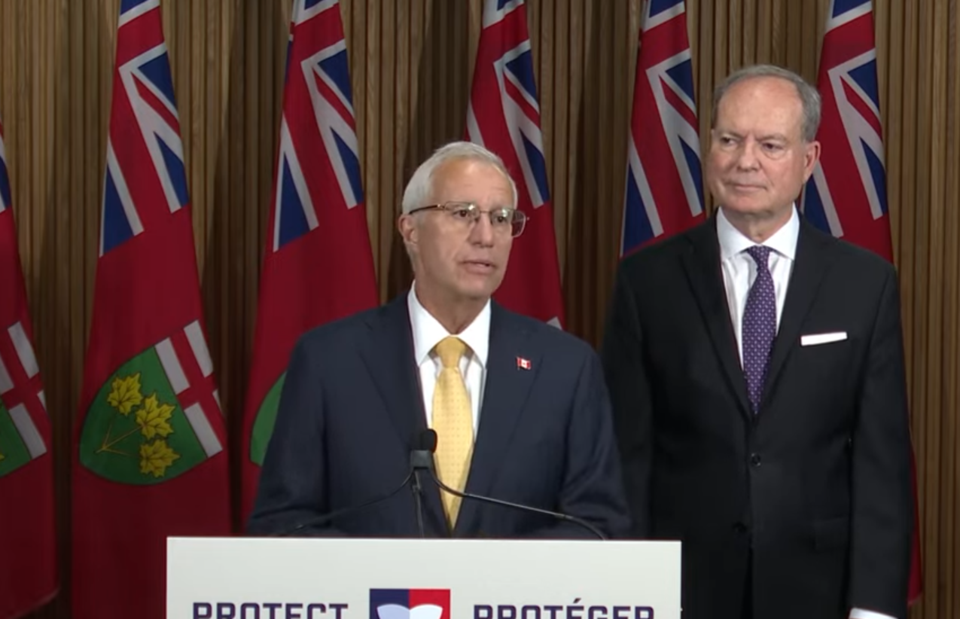Every First Nation in Ontario was invited to participate in the provincial government’s Bill 5 sessions to help design the special economic zones for strategic projects, insists Vic Fedeli, the province’s minister of economic development, job creation and trade.
Fedeli responded today to a reporter’s question in Toronto that chiefs of some northwestern Ontario communities contend that they weren’t invited to a series of meetings across the province — including one last week in Thunder Bay — to provide input and feedback on how to implement the controversial Protect Ontario by Unleashing Our Economy Act.
“I would say that we intend to fully commit to our duty to consult and I would say that invitations were, indeed, sent to all Indigenous communities in Ontario,” said Fedeli in a short remark.
His ministry is steering five sessions across Ontario to provide information and take in feedback from Indigenous leaders, lawyers and community advisors to discuss the implementation of the special economic zones and changes to the Ontario Heritage Act to exempt certain properties from archeological assessments.
The last consultation session is tomorrow in Sudbury.
The legislation has drawn anger all spring and summer from First Nation groups across the province with concerns about their treaty and constitutional rights being stripped away and uneasiness about how major infrastructure and resource projects will impact the environment and their traditional territories.
The province said it wants to reduce regulatory burdens in order to expedite approvals and permits on projects deemed strategic and in the national interest, such as the proposed Ring of Fire mineral development in the James Bay lowlands.
But whether First Nations would come out to government-staged consultation sessions remained to be seen.
Unlike public committee hearings for provincial legislation that are staged in Toronto and often rotated to regional cities around Ontario, the hearings in May for amendments to the highly contentious Bill 5 were held entirely in Toronto. The bill became law in early June.
On July 14, Fedeli’s deputy minister sent emailed notices to First Nation leaders urging them to participate and provide feedback on the act, which passed through the legislature in early June.
Indigenous consultation sessions were held in Toronto July 29 and Aug. 12, in London on Aug. 6, in Thunder Bay on Aug. 8, with the final session tomorrow in Sudbury at an undisclosed location. Those who register for the sessions are emailed the location of the meeting venue.
TBnewswatch in Thunder Bay, and its regional news satellites are reporting that many community leaders in northwestern Ontario were unaware of the meetings and never received invitations, including the Grand Chief of Nishnawbe Aski Nation.
When Fedeli was asked today why the sessions are closed to the public, he answered: “It’s consultation taking place with the First Nations and all First Nation communities were invited” before leaving the podium.
Last week in Sudbury, provincial Labour Minister David Piccini didn’t elaborate either on why the meetings are private, except to say this is part of the premier’s ongoing consultation efforts with First Nations.
Sudbury NDP MPP Jamie West piped up in a statement this week saying the Bill 5 consultation meetings with Indigenous leaders is only creating more ambiguity and confusion with a closed-door process.
"This is the bare minimum, and the government still can’t get it right. The government continues to operate entirely on its own terms, even as some chiefs who have publicly said that they are in states of emergency due to wildfires and unable to participate while their communities are in crisis."




